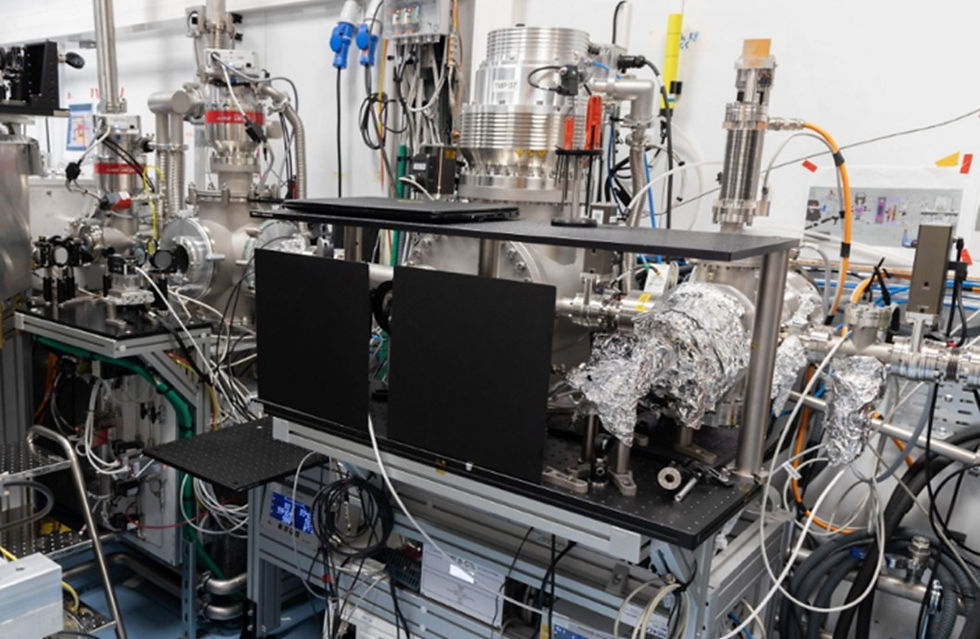CERN Accelerator School celebrates 40 years of existence
- Feb 16, 2024
- 3 min read
Research infrastructures require the world to work together on the design, construction, operation and subsequent optimization of these facilities to fully exploit their discovery potential. Scientists and engineers are working together across country borders, research disciplines, building bridges also between cultures, genders and generations. Sharing knowledge enables collaborations among researchers, leading to the formation of new ideas and research projects.

These are the ideas that brought up the first course of the CERN Accelerator School (CAS) forty year ago, in October 1983. Held at CERN, the course had the purpose of the communication of deep knowledge and the cultivation of teamwork during an era when significant progress could still be achieved by a single inventive scientist.
Four decades ago, the landscape of accelerator physics was vastly different from today's high-tech reality. Communication relied on telephones, faxes, and letters, with information primarily found in published books or conference proceedings.
Lectures at that time were based on hand-written transparencies, sometimes pictures and sketches, or transparency copies from books.
A key factor to the school’s success has been its innovative educational approach and the flexibility to adapt to new learning processes. Participants attend lectures delivered by selected lecturers, including some of the world’s foremost experts in accelerator physics, who willingly share their knowledge and insights in an engaging and accessible manner.
CERN celebrated this special anniversary with a special CAS40 Week in September 2023, which featured a diverse range of activities. The central point of engagement was the CAS stand, strategically positioned in Restaurant 1, which showcased the school's history, achievements, and its mission to advance accelerator technology education. This visual display was not only informative but also served as a conversation starter for attendees interested in the world of particle accelerators and their applications. A particularly exciting highlight of CAS40 Week was a special concert scheduled for the 14th of September during lunchtime. This concert, organised in collaboration with the CERN Music Club, promised to be a celebration of both the school's milestone and the power of networking within the CERN research community.
Another event in January 2024 honoured the dedicated lecturers, hands-on professionals and collaborators that come to CAS from CERN and from various institutes worldwide who have contributed all these years. A special recognition award went to Piotr Kowina, from GSI and to Massimo Ferrario, Project Leader of the EuPRAXIA@SPARC_LAB facility and chair of the Collaboration Board of the ESFRI project EuPRAXIA, from INFN. The award was presented by Deputy CAS Director Christine Vollinger who incorporated a quotation from a past participant of CAS into her speech, stating: “It is amazing. If I listen to Massimo, it sounds so easy and fully understandable, but when I look at the slides afterwards, all by myself, only then I see how hard to understand the topic truly is.”
Many of the current lecturers at CAS were once students and newcomers themselves. Now, they are recognised professors with successful careers and continue supporting the school and its specialised group of lecturers. “When I have a meeting with the school, I try to change the other commitments because this is a moment where you feel how important it is what you are doing […] you are doing something that will remain and will be improved” says Massimo Ferrario.
Over CAS’ 40 year-long history, more than 6000 accelerator students and professionals have been trained, over a hundred accelerator schools have been held, and over forty publications have been carefully and rigorously compiled. Many of its alumni have gone on to play crucial roles in the development, construction, and operation of particle accelerators around the world.
Today, any new accelerator is the result of international collaborations featuring many individual contributions. CAS promotes this development concept by fostering collaboration right from the start of the initial courses, ensuring that students engage in teamwork and maintain the connections forged during the courses throughout their careers.
More information can be found here:







Comments